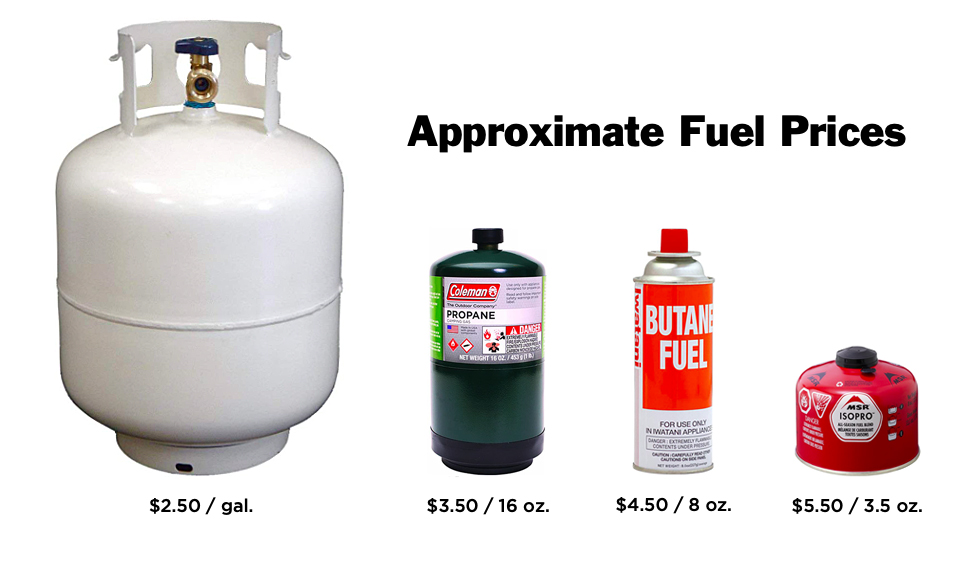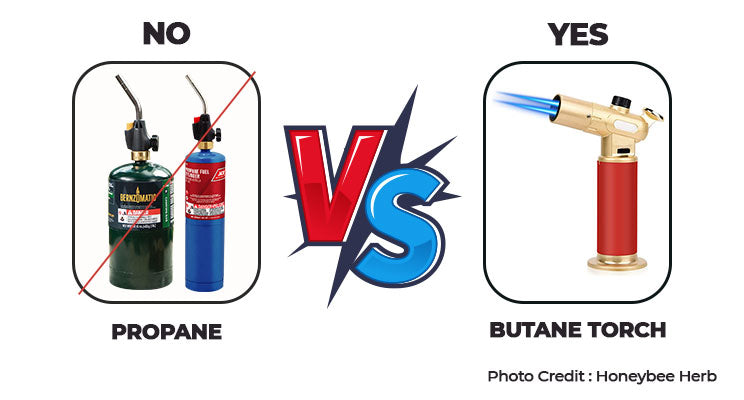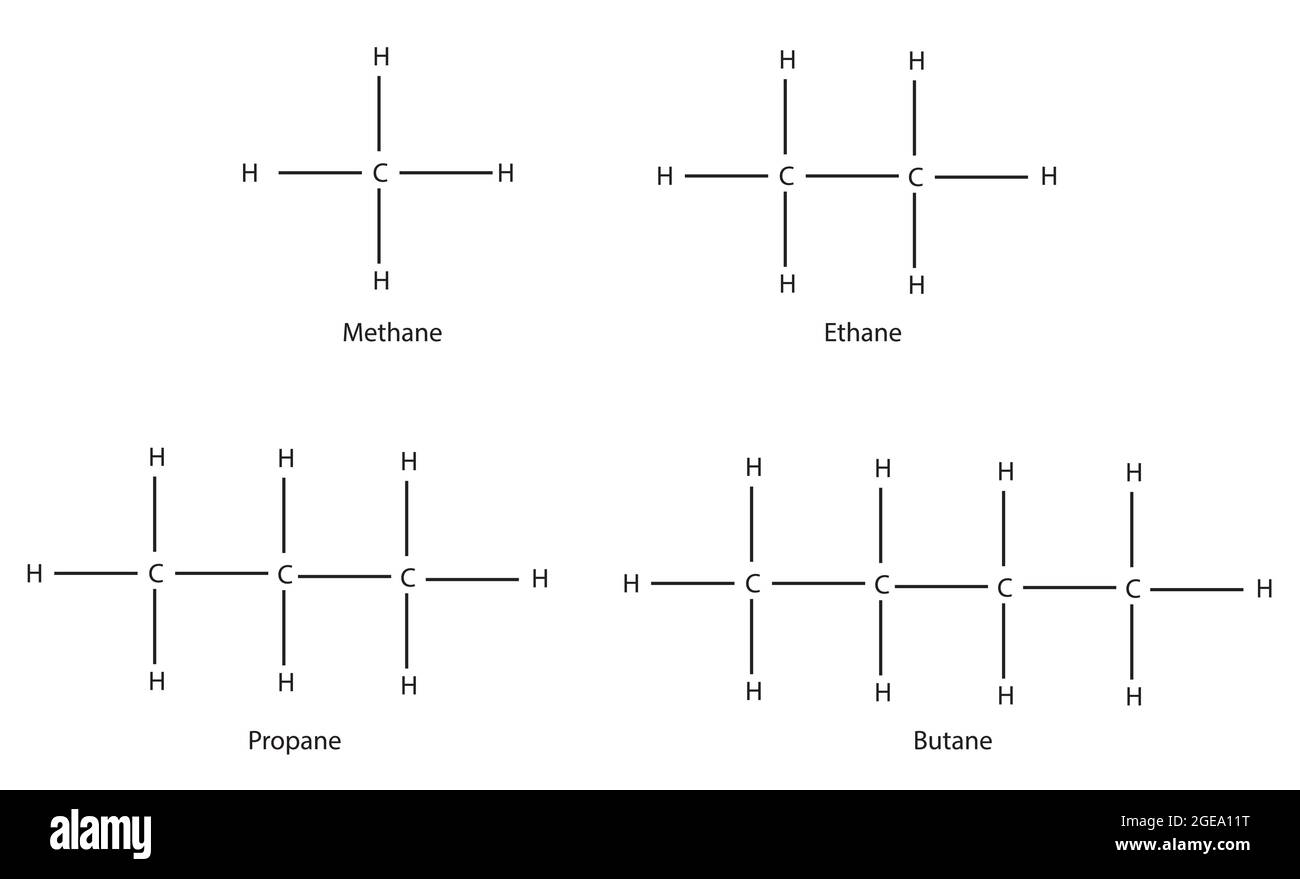Are you planning your next camping trip or looking to heat your home more efficiently? You might have come across the debate of propane vs butane.
It’s a decision that can impact your safety, comfort, and even your wallet. But how do you choose between these two popular fuels? What are their differences and which one suits your needs best? By the end of this article, you’ll gain clear insights and make an informed choice.
Dive in to discover which fuel is the perfect match for your lifestyle and requirements. Your next adventure or cozy evening depends on it!
Fuel Characteristics
Understanding the characteristics of fuel is essential for users. Propane and butane are popular choices for heating and cooking. Each has unique properties that influence their use. Let’s explore their chemical properties and energy content.
Chemical Properties
Propane is a three-carbon alkane. It is a gas at room temperature. It liquefies under moderate pressure. Butane, on the other hand, is a four-carbon alkane. It is also a gas at room temperature. It needs higher pressure to liquefy.
Propane is colorless and odorless. It is usually odorized for safety. Butane is also colorless and odorless. Like propane, it is odorized for detection.
Energy Content
Energy content defines how much energy a fuel can release. Propane has a higher energy content per liter. Butane delivers more energy per gram. This means propane is efficient for storage. Butane is efficient for weight-sensitive uses.
Both fuels are effective for different scenarios. Propane is ideal for colder temperatures. Butane is better for warmer climates. Knowing energy content helps make informed choices.

Credit: cheaprvliving.com
Cost Comparison
When it comes to choosing between propane and butane, cost is often a deciding factor for many people. Understanding the cost comparison between these two fuels can help you make a more informed decision. Let’s break down the price trends and economic factors that play a crucial role in determining which fuel might be more cost-effective for your needs.
Price Trends
Propane and butane prices can vary significantly based on market trends and seasonal demand. Propane is widely used for heating during colder months, often leading to higher prices in winter. Butane, on the other hand, is popular in warmer climates, so its demand—and therefore price—may spike during summer.
Consider tracking local fuel prices over several months. You might notice that propane prices fluctuate more than butane, which could impact your budget if you’re using it for heating or cooking. Keep an eye on these trends, especially if you’re planning large purchases or long-term use.
Economic Factors
Several economic factors influence the cost of propane and butane. Supply chain disruptions or geopolitical tensions can lead to price hikes for both fuels. However, propane is often produced domestically, which can sometimes make it cheaper and more stable in price compared to butane.
Think about how economic shifts affect your wallet. If you’re on a tight budget, consider the stability of propane prices. Butane might offer savings in certain situations, but its cost can be more volatile due to reliance on imports. Analyze your needs and evaluate how these economic factors might impact your choice.
Have you ever checked how your local suppliers adjust their prices during different seasons? Observing these changes can give you insights into when to buy and stock up. It’s all about timing and understanding market dynamics.
Have you thought about how often you use these fuels for camping or backyard BBQs? It might be worth calculating the overall cost for your specific usage patterns. Which fuel offers you the best bang for your buck? Share your experiences and insights in the comments below!
Environmental Impact
Choosing between propane and butane affects the environment differently. Understanding their environmental impact can help make informed choices. This section explores the emission levels and sustainability of each gas.
Emission Levels
Propane and butane emit different gases when burned. Propane burns cleaner than butane. It releases fewer carbon emissions. This means less pollution in the air. Butane, on the other hand, produces more carbon dioxide. This can contribute more to global warming. Choosing propane reduces the carbon footprint.
Sustainability
Sustainability matters in energy choices. Propane comes from natural gas processing. It’s a by-product, making it more sustainable. Butane is often sourced from crude oil. This involves more energy-intensive processes. As a result, propane is considered a greener choice. It has a smaller environmental impact. Opting for propane supports eco-friendly practices.
Safety Considerations
Choosing between propane and butane involves understanding safety features. Each gas has unique aspects affecting its safe use. Knowing these can prevent accidents and ensure proper handling.
Storage And Handling
Propane tanks are durable and designed for outdoor storage. They resist temperature changes well. Butane, on the other hand, needs careful storage indoors. It doesn’t handle low temperatures well. Propane requires secure, upright storage to prevent leaks. Butane tanks should be kept away from direct sunlight. Both gases need specific fittings and connectors. This ensures safe usage and reduces risks.
Risk Assessment
Propane is heavier than air, increasing the risk of settling in low areas. Proper ventilation is crucial to avoid buildup. Butane is lighter than propane but still demands caution. It can accumulate in enclosed spaces. Propane is highly flammable, requiring strict safety measures. Butane, while also flammable, poses less risk in controlled environments. Regular inspection of tanks and hoses is necessary. It helps prevent leaks and ensures safe operation.
Usage Scenarios
Propane and butane are popular fuels with distinct usage scenarios. Their unique properties make them suitable for different applications. Understanding where each is best used helps in making informed choices. Below, we explore how they serve both residential and commercial needs.
Residential Applications
Propane is a common choice for home heating. It powers furnaces, stoves, and water heaters. Its ability to work in cold temperatures makes it reliable. Many homeowners use propane for outdoor grills. It provides consistent heat, ideal for cooking. Butane is often used in portable heaters. It is also popular in lighters and camping stoves. Its high energy density makes it efficient for small devices.
Commercial Uses
Propane is widely used in commercial settings. It powers forklifts in warehouses. It also fuels generators and heating systems. Propane’s clean-burning nature is beneficial for indoor use. Butane finds its place in the food industry. It is used in portable cooking appliances. Restaurants and catering services often use butane stoves. Its portability and ease of use make it a favorite.

Credit: honeybeeherb.com
Performance In Cold Weather
Choosing between propane and butane often depends on weather performance. Cold temperatures can affect gas efficiency significantly. Both gases are popular for camping and outdoor activities. But their performance varies in winter conditions. Understanding their behavior in cold weather helps in making informed decisions.
Low Temperature Efficiency
Propane performs better in low temperatures. It remains effective up to -42°C (-44°F). This makes it ideal for winter camping or high-altitude adventures. Butane, on the other hand, struggles in the cold. It stops vaporizing at temperatures below -0.5°C (31°F). This limits its usefulness in freezing conditions. For those camping in snowy areas, propane is the reliable choice.
Outdoor Usage
Outdoor enthusiasts need fuel that works in all weather. Propane burns efficiently in cold environments. It ensures consistent heat output, even in harsh weather. This makes it perfect for outdoor stoves and heaters. Butane is better for mild weather. It is suitable for summer camping and picnics. But, its limitations become clear in the cold. Propane’s versatility makes it a favorite among outdoor users.
Availability And Accessibility
Propane and butane are popular choices for heating and cooking. Understanding their availability and accessibility helps users make informed decisions. Knowing where and how to find these fuels can save time and effort.
Distribution Channels
Propane is widely available due to its extensive distribution network. It is found at gas stations, outdoor stores, and home improvement centers. Large propane companies ensure a steady supply.
Butane is less common but accessible. It’s often sold in camping stores and supermarkets. Smaller cans are convenient for portable stoves and heaters.
Regional Differences
Availability varies by region. Propane is more common in rural areas. It fuels homes and farms where electricity is scarce.
Butane is popular in urban regions. Its compact size suits city dwellers with limited space. Local regulations can affect the supply of both fuels.

Credit: www.alamy.com
User Preferences
Choosing between propane and butane depends on user needs. Propane works better in cold weather. Butane is ideal for indoor use due to its clean burn. Both offer unique benefits for different situations.
When choosing between propane and butane, user preferences often vary based on specific needs and conditions. Whether you’re looking for a reliable fuel for camping, cooking, or heating, understanding what each gas offers can help you make the right decision. Some users prioritize portability, while others might focus on efficiency or cost.Consumer Trends
In recent years, there has been a noticeable shift toward propane for outdoor activities. It’s favored for its performance in colder temperatures, making it a popular choice for winter camping trips. You might find that campers and backpackers prefer propane because it remains effective even when the mercury dips. Butane, however, hasn’t lost its charm. Its compact nature appeals to those who prioritize lightweight equipment. If you’re planning a summer barbecue or a beach outing, butane canisters often win due to their ease of use and transportability.Industry Insights
The industry has observed a steady demand for both propane and butane, but with slight variances. Propane is increasingly used in industrial settings due to its high energy output and versatility. It powers everything from forklifts to heating systems, indicating a robust industrial preference. Butane, on the other hand, is gaining traction in the beauty and personal care industry. It’s used in products like hair sprays and lighters. You might be surprised to learn that butane’s clean burn and reduced odor have made it a preferred choice for these applications. Both gases have their unique advantages, but the ultimate choice often boils down to your specific needs and circumstances. Have you ever considered which gas would best suit your lifestyle or upcoming adventure? Understanding the nuances can make all the difference in your experience.Frequently Asked Questions
What Is The Main Difference Between Propane And Butane?
Propane works better in cold weather. Butane is more efficient in warm temperatures.
Which Gas Is Cheaper: Propane Or Butane?
Propane is often cheaper than butane. But prices vary by location and supply.
Is Propane Safer Than Butane For Indoor Use?
Yes, propane is safer indoors. It produces less carbon monoxide when burned.
Can You Mix Propane And Butane Together?
Yes, you can mix them. Many gas canisters already contain both for versatility.
Which Gas Is Better For Camping: Propane Or Butane?
Propane is better for camping. It works well in cold and high altitudes.
Conclusion
Choosing between propane and butane depends on your needs. Both fuels offer unique benefits. Propane is great for colder climates. It performs well in low temperatures. Butane is ideal for indoor use. It burns clean and is efficient. Consider your environment and application.
Safety is another key factor. Always handle these gases with care. Weigh the costs as well. Propane might be more accessible. Butane often costs less. Research and make an informed decision. Your choice will impact your energy efficiency. Make sure it aligns with your lifestyle and requirements.





